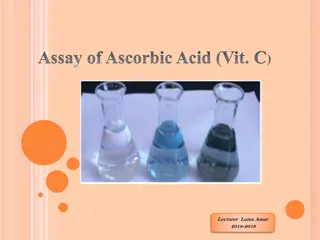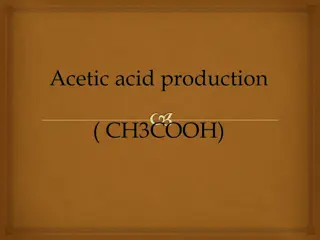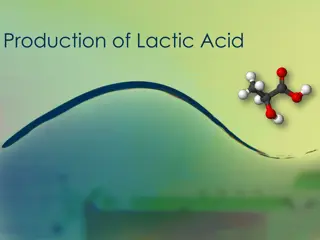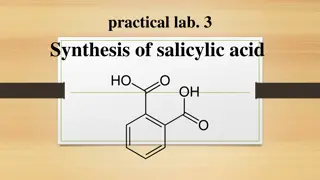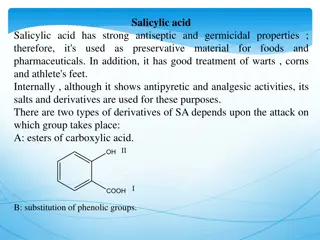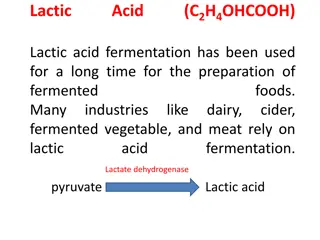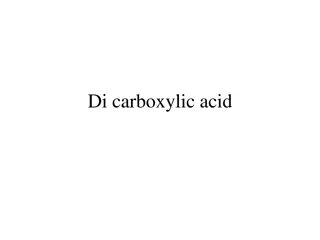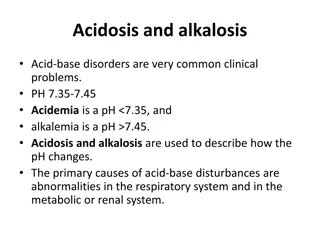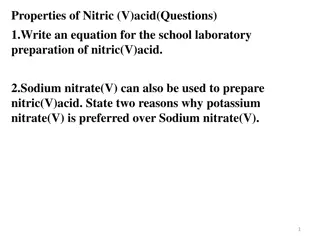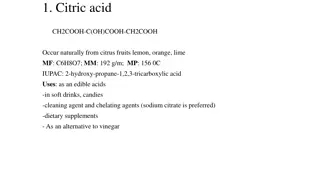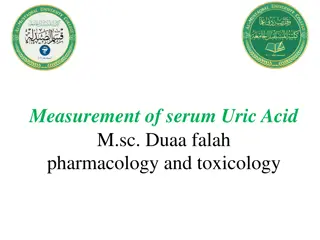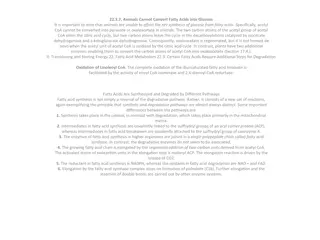Efficient Key Recovery Attack on SIDH
Efficient key recovery attack on Supersingular Isogeny Diffie-Hellman (SIDH) protocol. It explores the vulnerability of the protocol and proposes a concrete solution. The attack leverages auxiliary points to solve the isogeny problem and reveals instances of the common secret key.
5 views • 22 slides
Fernandes Thriving in United's Resurgent Attack^J Euro 2024 Success
Fernandes Thriving in United's Resurgent Attack, Euro 2024 Success\n\nhttps:\/\/blog.worldwideticketsandhospitality.com\/2024\/02\/15\/fernandes-thriving-in-uniteds-resurgent-attack-euro-2024-success\/\n\nUEFA Euro 2024 fans from all over the world can book European Championship 2024 Tickets on our
2 views • 5 slides
Titration Colour Changes
This collection features various experiments in chemistry involving titration and solutions. It includes procedures such as standardizing hydrochloric acid using sodium carbonate, titrating hydrochloric acid with sodium hydroxide to produce sodium chloride, determining the concentration of ethanoic
0 views • 10 slides
Understanding Barbiturates: History, Types, and Mechanism of Action
Barbiturates are derivatives of barbituric acid, acting as depressants on the central nervous system by potentiating GABA. First synthesized in 1864, they have a rich history in medicine. Types include Amobarbital, Phenobarbital, and Pentobarbital. The synthesis of barbituric acid involves a condens
0 views • 28 slides
Identification of Cardioactive Glycosides in Pharmacognosy Lab Experiments
In this Pharmacognosy lab session, students learn about the identification of cardioactive glycosides through chemical tests like Baljets Test and Keller-Killians Test. These tests involve specific procedures using reagents like picric acid, sodium hydroxide, glacial acetic acid, ferric chloride, an
0 views • 11 slides
Assay of Ascorbic Acid (Vitamin C) - Method and Procedure
Ascorbic acid, known as Vitamin C, is a crucial organic compound with antioxidant properties. This article discusses the assay of ascorbic acid using a redox titration method with potassium iodate and iodide. The principle, procedure, and calculations involved in determining the concentration of Vit
1 views • 8 slides
Best Acetic Acid Glacial Manufacturer Company - Modi Chemical
Modi Chemical stands out as the premier acetic acid glacial manufacturer, dedicated to delivering top-notch quality and unmatched customer service. With a strong focus on sustainability and innovation, Modi Chemical has become the go-to source for high-purity acetic acid glacial, catering to a wide
2 views • 1 slides
M-TOLUIC ACID Manufacturer in Gujarat - Modi Chemical
Modi Chemical is the top m-toluic acid manufacturer in Gujarat, renowned for delivering high-quality, pure m-toluic acid. Our state-of-the-art facilities and stringent quality control ensure exceptional product consistency and reliability. Committed to sustainability and innovation, we serve a wide
0 views • 1 slides
Industrial Production of Citric Acid and Microbial Fermentation
Industrial production of citric acid has evolved from extraction processes to microbial fermentation, offering various industrial applications. Citric acid is utilized as an acidulant in food and pharmaceutical industries, a chelating agent in tanning, and a flavor enhancer in carbonated beverages.
1 views • 18 slides
Industrial Production of Citric Acid: Fermentation Processes and Applications
Citric acid is industrially produced through microbial fermentation processes. It is widely used in various industries such as food, pharmaceuticals, and beverage production. Different methods like surface culture fermentation are employed for citric acid manufacture, with fungi like Aspergillus nig
4 views • 18 slides
Limit Test of Iron Based on Color Reaction with Thioglycollic Acid
The limit test for iron involves the reaction of iron in ammoniacal solution with citric acid and thioglycollic acid to form a reddish-purple color. By comparing the color produced with a standard solution, the presence of iron is determined. Citric acid prevents precipitation of iron, while thiogly
1 views • 5 slides
Understanding the Impact of Acid Rain on Ecosystems
Investigate the effects of acid rain caused by fossil fuel combustion on water acidity, plant life, animals, and structures. Learn how nitrogen oxides and sulfur dioxide create acid solutions in the atmosphere, affecting watersheds and sensitive ecosystems. Explore the devastating consequences of ac
1 views • 20 slides
Determination of Acetic Acid Content in Vinegar Experiment
The experiment aims to measure the total acid concentration in a specific brand of vinegar through a titration process using NaOH solution. The procedure involves titrating the vinegar solution with NaOH until a pink color appears, calculating the concentration of acetic acid, and determining the pe
3 views • 8 slides
The Production and Uses of Acetic Acid: From Ancient Practices to Modern Applications
The production of acetic acid, specifically in the form of vinegar, has a long history dating back to ancient times. Vinegar was utilized for various purposes such as a food condiment, treating wounds, and addressing different illnesses. Today, acetic acid is mainly used in the food industry for con
1 views • 17 slides
Overview of Lactic Acid Production and Applications
Lactic acid occurs in two isomeric forms and has various applications in food, pharmaceuticals, and skincare industries. It is primarily produced through the fermentation of sugars by microorganisms. The production process involves using raw materials like purified sugars and agricultural wastes. Th
4 views • 11 slides
Understanding Enzyme Catalysis and Active Site Role
Enzymes play a crucial role in catalyzing biochemical reactions by stabilizing transition states through their active sites. Different mechanisms like acid-base, covalent, metal, and electrostatic interactions are employed for stabilization. Acid-base catalysis involves acceleration without being co
1 views • 21 slides
First Nations Attack on Fort Michilimackinac 1763: Causes, Tribes, and Aftermath
The First Nations' attack on Fort Michilimackinac in 1763 was triggered by British actions that disrupted their way of life. The Ojibwe, Odawa, Potawatomi, Ottawas, and Hurons were involved in the attack, led by Chief Pontiac. Following the attack, the British did not rebuild the fort but establishe
1 views • 7 slides
Synthesis of Salicylic Acid: Theory, Derivatives, and Applications
Salicylic acid is synthesized from methyl salicylate through ester hydrolysis with aqueous alkali. It is a versatile compound used in organic synthesis, as a plant hormone, and derived from salicin metabolism. The derivatives of salicylic acid can minimize gastric disturbances and enhance therapeuti
4 views • 12 slides
Overview of Salicylic Acid and its Derivatives
Salicylic acid is known for its antiseptic, germicidal, and analgesic properties, used in various applications such as preservatives, wart treatments, and pain relief. Different derivatives of salicylic acid are developed to minimize side effects and enhance efficacy. Acetyl salicylic acid (ASA), co
0 views • 15 slides
Enhancing Cybersecurity for Windows Infrastructure: A Practical Guide
In this informative session, Vladimir Stefanovi, a seasoned System Engineer and Technical Trainer, sheds light on the vulnerabilities of Windows servers and provides valuable insights on how to protect and fortify your infrastructure against cyber threats. From traditional to modern attack vectors,
0 views • 21 slides
Duane Wolf Attack Simulation Study: Insights for Law Enforcement Officers
Duane Wolf conducted an attack simulation study to test the speed at which an un-handcuffed suspect sitting on a curb can launch an attack on officers. The study involved volunteers in different leg positions to mimic real-life scenarios. Findings emphasized the importance of officers staying alert
0 views • 9 slides
Important Bacterial Groups in Food
Bacteria play a crucial role in food, with various groups such as Lactic Acid Bacteria, Acetic Acid Bacteria, Propionic Acid Bacteria, Butyric Acid Bacteria, Proteolytic Bacteria, Lipolytic Bacteria, Saccharolytic Bacteria, and Pectinolytic Bacteria identified for their specific roles in food fermen
0 views • 17 slides
Lactic Acid Fermentation in Food Industry
Lactic acid fermentation is a widely used method for producing fermented foods like dairy, vegetables, and meats. This process involves lactic acid bacteria and filamentous fungi to convert sugars into lactic acid. Various microbial cultures are utilized, and raw materials such as whey, molasses, an
0 views • 23 slides
Understanding Blending Attacks on Mixes by Meng Tang
Explore the effectiveness of blending attacks on mixes, including steps of a blending attack, attack models, factors affecting the attack, defense strategies, and insights from the attacker's viewpoint.
0 views • 25 slides
Volleyball Referee Hand Signals for Common Violations
Learn the essential hand signals used by volleyball referees to indicate common violations during a game. Signals include illegal alignment, line violation, illegal hit, delay of service, over the net, net foul, legal back row attack, illegal attack of serve back row attack, and illegal block/screen
0 views • 26 slides
Understanding Purine Degradation and Gout
Purine degradation pathway involves the breakdown of dietary nucleic acids, mainly from meat, into uric acid through specific enzymatic steps. Excessive uric acid production can lead to conditions like gout and hyperuricemia. Humans excrete uric acid in the urine as the final product, while other an
1 views • 12 slides
Understanding Acid-Base Balance and Regulation in the Body
Acid-base balance is crucial for maintaining optimal physiological functions. This content explains the definitions of acids and bases, differentiates between strong and weak varieties, explores the significance of pH control in body fluids, and delves into the roles of buffers, kidneys, and lungs i
0 views • 20 slides
Mechanism of Br2 Attack on Trans-Cinnamic Acid
The detailed anti-attack and syn-attack mechanisms of Br2 on trans-cinnamic acid are presented, illustrating the intricate steps involved in preventing or facilitating the attack of bromine on the compound. The process involves initial attack, bridgehead formation, bond rupture, bond stabilization,
0 views • 11 slides
Understanding DiCarboxylic Acid: Properties, Preparation, and Uses
DiCarboxylic acid is an organic compound containing two carboxyl functional groups. Focus on Oxalic acid, its physical and chemical properties, preparation methods, and various applications including as a cleaning agent, in industrial processes, and potential medicinal uses. Learn about the unique c
0 views • 10 slides
Understanding Acidosis and Alkalosis in Acid-Base Disorders
Acid-base disorders, involving acidosis and alkalosis, are common in clinical practice. These conditions are characterized by changes in pH levels, with acidemia (pH < 7.35) and alkalemia (pH > 7.45) representing acidosis and alkalosis, respectively. The primary causes of these imbalances lie within
0 views • 17 slides
Laboratory Preparation of Nitric(V) Acid & Chemical Reactions
In this set of questions, we explore the preparation of nitric(V) acid in a school laboratory setting, its properties, and chemical reactions. Topics covered include the use of sodium nitrate(V) and potassium nitrate(V), the use of glass apparatus during the preparation process, color changes in con
0 views • 4 slides
Understanding Acid Rain and Its Environmental Impact
Exploring the phenomenon of acid rain, this activity investigates the effects of fossil fuel emissions on water acidity. By using a pH-meter sensor, participants create hypotheses and conduct experiments to understand what determines the pH of acid rain. Theoretical insights reveal how nitrogen oxid
1 views • 20 slides
Case Study on Acid Attack and Violence in Nigeria
This case study highlights a horrific acid attack on a young woman, B.U., and her siblings in Nigeria. The incident stemmed from a confrontation over stolen money and a rejected romantic advance, leading to severe physical and psychological consequences for the victims. The story underscores issues
0 views • 7 slides
Common Organic Acids and Their Uses in Various Industries
Citric acid, lactic acid, salicylic acid, and tartaric acid are natural acids found in various fruits. They have diverse applications in food and beverage, pharmaceutical, and cosmetic industries. These acids are used for flavoring, cleaning, as food additives, and in the preparation of various prod
0 views • 4 slides
Equilibrium and Acid-Base Problems in Chemistry Lecture
In this lecture, topics such as Advanced Equilibrium, Acid/Base Equilibria, Systematic Method for solving chemical problems, Strong Acid/Strong Base scenarios, and General Comments on reactions are discussed. Examples using the systematic method are provided for practical understanding. Key points o
0 views • 13 slides
The Ultimate Guide to Salicylic Acid Cream for Clearer Skin
This article explores the benefits of salicylic acid cream, how it works, and the best options available in Pakistan. We\u2019ll also guide you on where to find the best salicylic acid products and what to consider when buying salicylic acid cream in
0 views • 4 slides
Top 5 Salicylic Acid Body Washes for Clear Skin
Salicylic acid, a powerful beta hydroxy acid (BHA), is known for its remarkable ability to fight acne and improve skin texture. As an ingredient commonly found in skincare products, salicylic acid body washes are particularly effective for treating b
0 views • 4 slides
Understanding Serum Uric Acid Levels and Hyperuricemia
Serum uric acid is a crucial marker of purine metabolism, with elevated levels indicating hyperuricemia which can lead to conditions like Gout. The measurement of serum uric acid helps in diagnosing hyperuricemia, with serum being the preferred specimen for testing. Various factors such as diet, gen
0 views • 12 slides
Social Engineering Attack Framework (SEAF) - Understanding the Process
Social Engineering Attack Framework (SEAF) provides a structured approach to executing social engineering attacks. It defines the attack framework, assists in planning and execution, and helps in verifying the success of the attack. The process involves identifying the attack goal, assessing potenti
0 views • 16 slides
Understanding Fatty Acid Metabolism in Animals
Animals cannot convert fatty acids into glucose due to the inability to synthesize glucose from fatty acids. The process involves acetyl-CoA not being converted into pyruvate or oxaloacetate, leading to the citric acid cycle and differences between fatty acid synthesis and degradation pathways. Key
0 views • 8 slides





